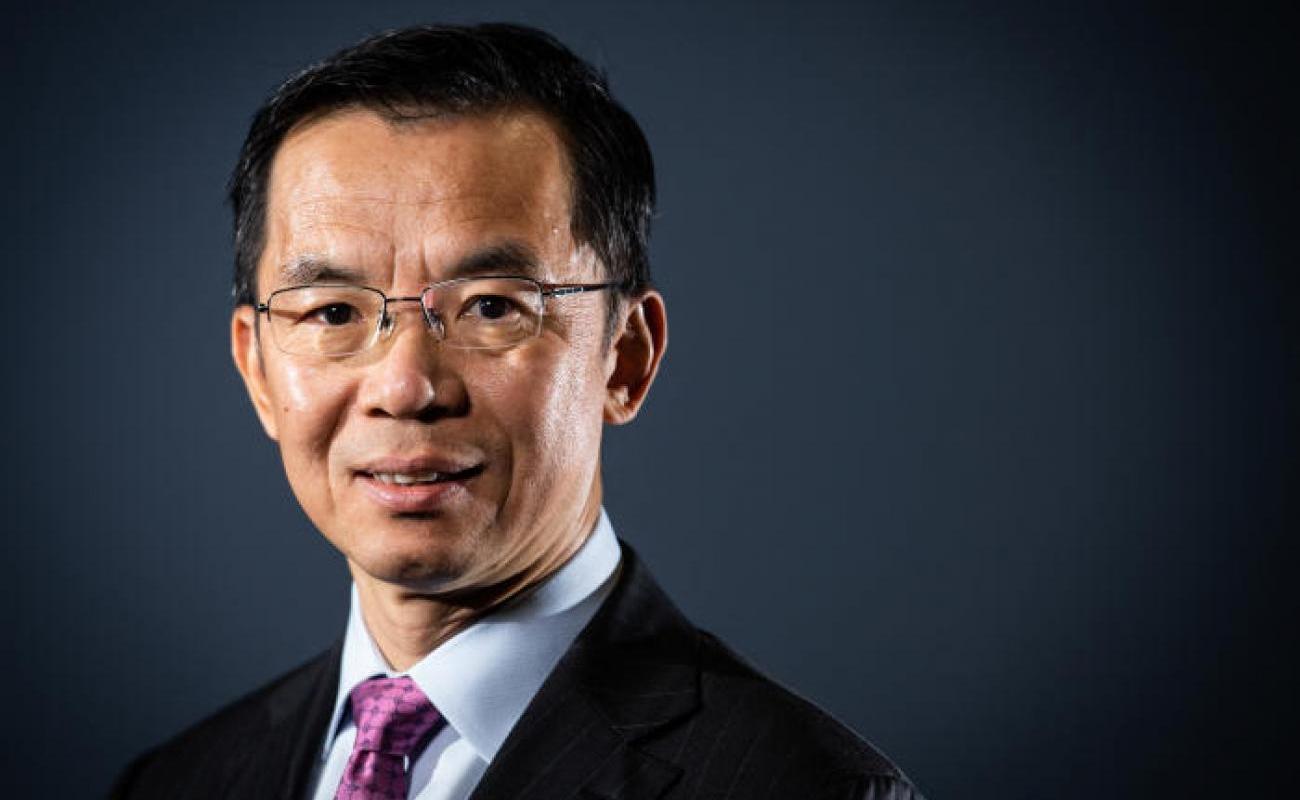Chinese envoy to France's remarks on ex-Soviet states provoke outrage in Europe

Beijing's ambassador to Paris, Lu Shaye, suggested on Friday, April 21 that countries that emerged after the fall of the Soviet Union 'don't have effective status under international law.'
The French government told China's ambassador in Paris on Monday, April 24, to "make his public remarks in line with the official position of his country," after his remarks on post-Soviet states sparked outrage, the foreign ministry said.
Beijing's ambassador to France Lu Shaye triggered a furor by saying on French television that countries that emerged after the fall of the Soviet Union "don't have effective status under international law because there is not an international agreement confirming their status as sovereign nations."
An official at the French foreign ministry told Agence France-Presse said a meeting of its chief of staff with the Chinese ambassador – which had been scheduled before he made the controversial remarks – "will be an opportunity for a stern rebuke."
The ambassador's comments cast doubt not just on Ukraine, which Russia invaded in February 2022, but all former Soviet republics which emerged as independent nations after the fall of the Soviet Union in 1991, including members of the European Union.
French President Emmanuel Macron hit back at Lu's remarks, insisting their borders are "inviolable." He told journalists: "I think it's not the place of a diplomat to use that kind of language."'Unacceptable'
EU foreign policy chief Josep Borrell branded the remarks "unacceptable" in the latest sign of indignation in Europe. "The EU can only suppose these declarations do not represent China's official policy," he tweeted.
Ukrainian presidential aide Mykhaylo Podolyak said on Sunday that the status of post-Soviet countries was "enshrined in international law," while he also took issue with Lu's comments on Crimea, which was occupied by Russia in 2014. Asked if Crimea was Ukrainian during his interview on LCI, Lu replied, "it depends on how you look at the problem. There's history. Crimea was Russian at the start."
"It is strange to hear an absurd version of the 'history of Crimea' from a representative of a country that is scrupulous about its thousand-year history," Podolyak said, referring to China.
The EU's three Baltic countries on Monday summoned China's envoys to explain Lu Shaye's remarks, Lithuania's foreign minister said. Gabrielius Landsbergis said the diplomats would be asked to explain if the "Chinese position has changed on independence and to remind them that we're not post-Soviet countries but we're the countries that were illegally occupied by the Soviet Union."
Latvia's Foreign Minister Edgars Rinkevics wrote on Twitter that his views were "completely unacceptable," while Estonia's top diplomat Margus Tsahkna called them "false and a misinterpretation of history."
"China respects the sovereign state status of the participating republics after the dissolution of the Soviet Union," Chinese foreign ministry spokeswoman Mao Ning told reporters on Monday.
The timing of the controversy is embarrassing for French President Emmanuel Macron who visited Beijing this month to encourage Chinese President Xi Jinping to put pressure on Russian leader Vladimir Putin to end his invasion of Ukraine. Macron's trip caused unease among some Western allies who are skeptical of China's intentions, given Xi's formal alliance with Russia.
On Saturday the French foreign ministry said it had "learned with consternation about the statements from the Chinese ambassador in France about the borders of countries that became independent after the fall of the Soviet Union." "It remains up to China to say whether these statements reflect its position which we hope not to be the case," it added.
China has emphasized its relationship with Russia even as it seeks to portray itself as a neutral party in the Ukraine war and has proposed a political solution to the conflict which was rejected by Kyiv and its Western backers.
'Wolf warrior'
Lu has previously acknowledged being part of the so-called "wolf warrior" class of Chinese diplomats, a nickname given to those who respond vehemently to critics they perceive as hostile to China.
In January 2019, he accused Canada of "white supremacy" for calling for the release of two Canadians detained in China, days after Huawei executive Meng Wanzhou was arrested in Canada at the request of the United States.
After taking up a new role in Paris, he caused a fresh diplomatic spat in 2021 when he called a critical French researcher a "little thug" and a "troll" on Twitter. He also took aim at French lawmakers who were weighing a trip to Taiwan which China is threatening to seize by force.
Summoned by the French foreign ministry over the "insults and threats," he took the highly unusual step of delaying his appearance, citing "scheduling issues." This sparked further irritation in Paris. "Neither France nor Europe is a doormat," then-Europe minister Clement Beaune warned. "When you are summoned as an ambassador, you pay a visit to the foreign ministry."
